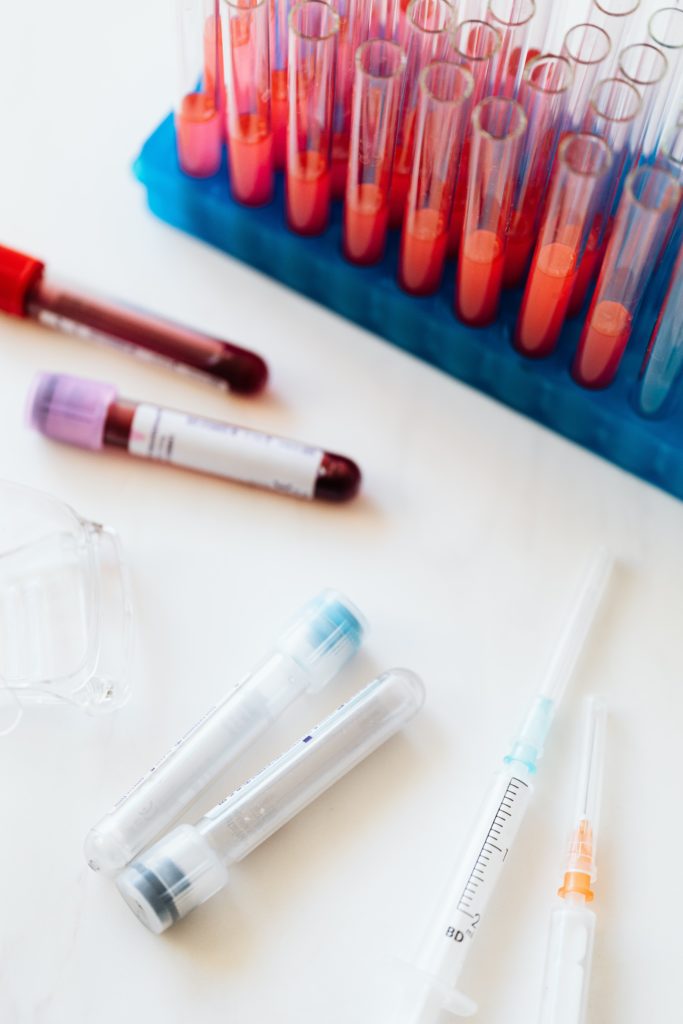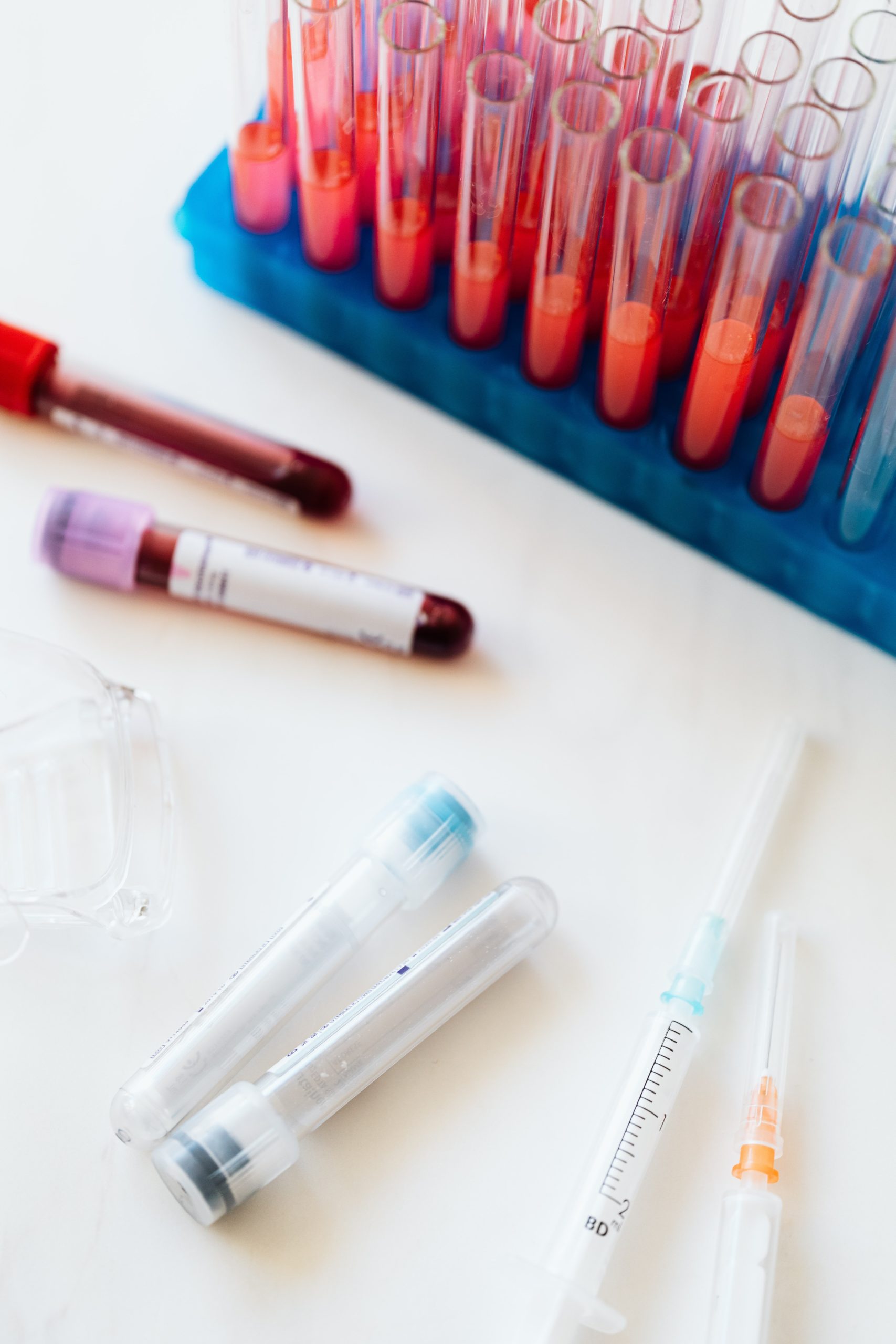As women, we know that our hormones play a vital role in our health and well-being. From our menstrual cycle to menopause and beyond, hormones are the chemical messengers that regulate many of our bodily functions. Despite their importance, many women don’t give much thought to their hormonal health until something goes wrong. This is why it’s important to get tested regularly to keep track of your hormone levels and make any necessary changes to your lifestyle or medical treatment.
Why Test Your Hormones?
Hormones are the messengers that tell your body what to do, when to do it, and how much of it to do. They regulate your menstrual cycle, your metabolism, your mood, and many other bodily functions. When your hormone levels are imbalanced, it can lead to a wide range of symptoms and health problems. By getting your hormone levels tested, you can identify any imbalances and work with your healthcare provider to find the best treatment plan.

Testing your hormone levels can also help identify any underlying health conditions that may be affecting your hormone levels. For example, thyroid problems, polycystic ovary syndrome (PCOS), and adrenal gland disorders can all cause imbalances in hormone levels. By identifying these conditions early on, you can start treatment and prevent further health complications.
When Should You Get Tested? There are many factors that can affect your hormone levels, such as age, stress, diet, and lifestyle choices. This is why it’s important to get tested regularly throughout your life, even if you’re not experiencing any symptoms. Here are some general guidelines for when to get tested:
- In your 20s: If you’re not experiencing any symptoms, you can get tested every 3-5 years to establish a baseline hormone level. If you are planning to start a family, it is important to get your hormones tested to ensure that your menstrual is cycle is regular and your ovulation is normal.
- In your 30s: You may be starting your family or trying to find appropriate healthy birth control methods. Understanding your cycle continues to be very important.
- In your 40s: As you approach perimenopause, it’s important to monitor your hormone levels to identify any imbalances that may be causing symptoms such as hot flashes, mood swings, and sleep disturbances and resistant weight gain.
- In your 50s and beyond: During menopause, your hormone levels will naturally decline, but it’s still important to monitor them to ensure that they’re within a healthy range.
Medical Studies on Hormonal Testing
As women, wherever we are on the age spectrum, it’s important for us to remember that our choices today, will dictate our hormonal health, our breast health, brain health, heart health and bone health as we age! How do you want to look and feel when you’re 50, 60, 70 & 80?
Research has shown that certain hormonal imbalances can increase the risk of various health conditions, including:
- Polycystic ovary syndrome (PCOS): A hormonal disorder that can cause infertility, irregular periods, and acne.
- Thyroid problems: Hormonal imbalances in the thyroid can lead to weight gain, fatigue, and depression.
- Diabetes: Hormonal imbalances can affect insulin levels, which can lead to diabetes.
- Osteoporosis: Low levels of estrogen can lead to bone loss and increase the risk of osteoporosis.
- Breast cancer: High levels of estrogen, as well as poor estrogen metabolism, can increase the risk of breast cancer.
For these reasons, it’s important for women to get tested for hormonal imbalances regularly. In fact, the American College of Obstetricians and Gynecologists recommends that women get tested for hormonal imbalances every one to two years, depending on their age and health history.
Testing your hormones
Getting your hormone levels tested is a simple and painless process. There are a few different types of tests that your healthcare provider may recommend, depending on your symptoms and medical history. Here are some of the most common hormone tests that western medicine providers may use:
- Blood test: This is the most common type of hormone test. It involves drawing blood from a vein in your arm and sending it to a lab for analysis.
- Saliva test: This test measures the levels of hormones in your saliva. It’s less invasive than a blood test and can be done at home with a test kit.
- Urine test: This test measures the levels of hormones in your urine. It’s typically used to monitor hormone levels over time, rather than as a one-time test.
- A comprehensive approach – It’s important to note that hormone levels can vary throughout the day and throughout your menstrual cycle. Your healthcare provider will take this into account when interpreting your test results. This rise and fall throughout the day are why I prefer the Functional Medicine approach to hormone testing using the DUTCH test.
Comprehensive Hormone Testing – the Functional Medicine Approach
As I stated in last week’s article, 20 years ago, I too was one of the providers using a combination of the above tests. However, once I discovered the DUTCH test
The Dried Urine Testing for Comprehensive Hormones (DUTCH) is a fantastic tool that provides a comprehensive look at a woman’s hormonal health. It is considered one of the best hormone tests available because it provides more detailed information about hormone levels than traditional blood tests. Here are some reasons why the DUTCH test is a better option:
- More Comprehensive Testing: The DUTCH test measures a wider range of hormones than traditional blood tests. It provides information about not only the levels of estrogen, progesterone, and testosterone but also their metabolites, which can provide valuable information about how the hormones are being processed in the body.
- Accurate Results: The DUTCH test uses dried urine samples, which are more stable than blood samples, resulting in more accurate hormone levels. Additionally, the test provides a 24-hour collection period, allowing for fluctuations in hormone levels throughout the day to be measured.
- Easy to Use: The DUTCH test is easy to use and can be done at home. The test involves collecting a few urine samples over a 24-hour period, which are then sent to a lab for analysis. The results are typically available within a few weeks.
- Personalized Treatment: With the detailed information provided by the DUTCH test, healthcare practitioners can develop personalized treatment plans for their patients. This can include targeted use of bioidentical hormones, lifestyle changes, and nutritional supplements.
- Prevention and Early Detection: The DUTCH test can detect hormonal imbalances before symptoms occur, allowing for early intervention and prevention of more serious health conditions. This is especially important for women who are at increased risk for hormone-related conditions such as breast cancer or osteoporosis.
In summary, hormonal health is essential to overall health and vitality for women of all ages! Hormonal testing should provide bio- individualized information to guide your wellness journey. I recommend the DUTCH test because it’s a more comprehensive and accurate way to assess a woman’s hormonal health. In fact, Dr, Tara Scott, a nationally recognized authority on hormones and wellness stated, reiterated what I have been telling clients for some time – “The Standard of Care (what is considered the normal recommendations by western medicine) should be that women should get the DUTCH test at ages 25, 35, 45, 55…”

Gals, take control of your health and prevent serious health conditions by testing your hormones today. IF you are interested in doing The DUTCH test – use code LDF100 to get a $100 discount on the test. You can then connect with me for interpretation.
Here’s to your happy hormone balance and increased Vitality!
References
- American College of Obstetricians and Gynecologists. (2018). Hormone Testing. Retrieved from https://www.acog.org/patient-resources/faqs/gynecologic-problems/hormone-testing
- National Institutes of Health. (2021). Hormone Health Network. Retrieved from https://www.hormone.org/
- Mayo Clinic. (2021). Hormonal Imbalance. Retrieved from https://www.mayoclinic.org/diseases-conditions/hormonal-imbalance/symptoms-causes/syc-20351829
- The North American Menopause Society. (2021). Hormone Testing. Retrieved from https://www.menopause.org/for-women/menopauseflashes/menopause-symptoms-and-treatments/hormone-testing
- Women’s Health.gov. (2021). Hormonal Imbalance. Retrieved from https://www.womenshealth.gov/a-z-topics/hormonal-imbalance

